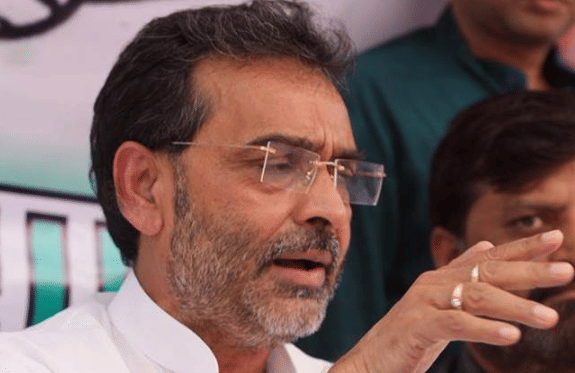Upendra Kushwaha’s exit from NDA is likely to impact the BJP in Bihar, where his RLSP was an ally.
New Delhi: The Rashtriya Lok Samta Party president Upendra Kushwaha, who joined forces with the opposition Thursday, days after quitting the National Democratic Alliance (NDA), had given ample clues that his ties with the BJP had become rocky.
Speculation that he would break away from the NDA gained ground in August after his kheer remarks, which was seen as an overture to the opposition. The RLSP chief had been unhappy with the NDA readmitting the Nitish Kumar-led JD(U) into its fold.
ThePrint has now learnt that there were tell-tale signs even in the Human Resource Development (HRD) ministry, where Kushwaha served as a minister of state, that he would quit the NDA alliance.
According to those close to him, Kushwaha, who had served close to five years as a junior HRD minister in the Modi government at the time of his resignation, was disenchanted a long time ago.
Kushwaha, who had more experience in the ministry than even the current HRD Minister Prakash Javadekar, did not attend some of the major events, including the meeting of the Central Advisory Board of Education (CABE), the highest decision-making body on all matters related to education. The meeting took place in January this year.
“Starting from somewhere in the middle of this year, he had started coming less to office. Sometimes just two to three days in a month because he felt that he was not being involved in major policy decisions,” said a source close to the minister. “Some of the most crucial policy files reached him towards the end without him being consulted.”
The tipping point for the minister came when his party was denied four seats in the NDA alliance for 2019. Kushwaha, who allied with the BJP in February 2014, exited the alliance early this month.
In a strongly-worded resignation letter to Prime Minister Narendra Modi, he said that he joined BJP alliance with a great deal of expectations but “after having served in the council of ministers for 55 months, he felt dejected and betrayed by his leadership”.
“There has been a fundamental conflict in what you have promised to the people before elections and what you have actually delivered after coming to power,” he wrote in his letter.
Also read: Days after Bihar leader Upendra Kushwaha quits NDA, BJP announces OBC meet in Patna
The caste leader
A prominent leader from Bihar, Kushwaha is a Member of Parliament from Karakat Lok Sabha constituency in Rohtas district, a seat dominated by the Kushwaha community.
The Kushwahas or Koeris claim their origin from Lord Ram’s son Kush, with his other son Luv said to have initiated the Kurmi caste, to which Nitish Kumar belongs. Kushwaha and Nitish are political rivals.
The Kushwahas are a largely farming community and constitute over 12 per cent of the population in Bihar. Political science theorists believe that his exit will cost the Kushwaha vote for the BJP in Bihar.
“The Kushwahas are a strong community and the reality is that caste dynamics work very strongly in Indian elections,” said Aditya Narayan Mishra who teaches political science at Delhi University. “So, Kushwaha’s exit is likely to affect the BJP’s chances in the state.”
Early life and education
The former minister began his career as a politician in 1985 when he joined the Yuva Lok Dal. He went on to join the Yuva Janata Dal and worked for the Samta Party later.
In March 2013 he floated his own party, the Rashtriya Lok Samata Party (RLSP).
Kushwaha did his graduation from Patna Science College and went on to complete his post-graduation in Political Science from Bihar’s B.R. Ambedkar Bihar University in Muzaffarpur.
Around the same time that he entered politics, he also began his professional career as a teacher. He was a lecturer of Political Science at Samta College’s Department of Political Science.
Also read: Upendra Kushwaha’s exit could undo BJP’s carefully planned Bihar caste coalition







Not a great educationist, like Dr S Radhakrishnan. Little match between talent / domain knowledge / relevant experience and ministerial responsibility.